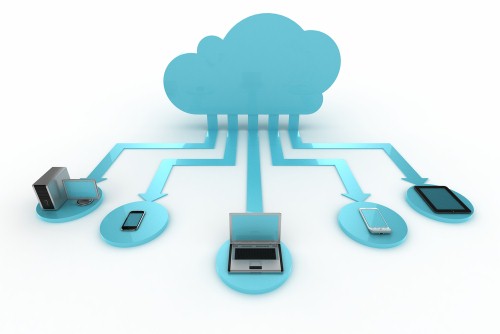In general, cloud computing us a virtualized, billable and flexible service. It is a metaphor of a method that allows users to access services and applications using the Internet technology. Everything can be implanted starting from the bottom stack to the access layer. There are many services and applications within this stack that enable continuous monitoring of PMSN (processing, memory, storage and network) resources. The chargeback application will provide the billing and metering for consumers.
Here are types of cloud deployments:
- Private cloud deployment: It is a model of choice for many businesses. It could provide us with excellent security. This is particularly important for organizations and companies that need to achieve compliance in data security. It should be noted that we should avoid providers that sell managed hosting and repackage it as a private cloud solution. They simply take advantage of the confusion and hype surrounding the cloud implementation. We should check whether any service provided is a real cloud solution or just a standard managed hosting.
- Public Cloud Deployment: There are many examples of public cloud deployment model and one of them is Amazon EC2. More and more organizations are finding this model as a very useful addition to their present delivery model. It is possible for smaller business to take advantage of the reasonable costs provided by the public cloud. This is particularly true when very strong security mechanism isn’t really an issue. Even government institutions and large companies can find benefits in using public cloud solutions, if they serve the data directly for the public, not internal employees.
- Community Cloud Deployment: This solution is ideal if users plan to use their personal computers as shared resources in a point to point network. Given that current processors are powerful enough to handle both local and networked applications at the same time; community cloud solutions should provide us with plenty of good benefits. Our computers may also have fast SATA disks and a good chunk of system memory; this makes sharing services and applications are applicable in many communities. One distinct advantage of community cloud is that we are not tied to any vendor. We are not subject to rules implemented by a vendor. It means, the community can set their own solutions as co-operative and free of charge. Security may not be a critical matter in community-based cloud, but there are still some reliable solutions that can prevent security breaches. While cloud vendors are not really required, they are not excluded entirely. Some providers could still provide reasonably affordable community cloud solutions. Large companies could also use community cloud for their employees and consumers if the information shared is available for public and must be distributed whenever possible. In this case, community cloud is a good marketing and sales tool for some companies.
- Hybrid Cloud Deployment Model: It is a useful solution when we want to have an access to public cloud, but still maintaining certain degree of restriction the sharing of specific information. The hybrid cloud should be a good solution to provide this type of environment for users.
